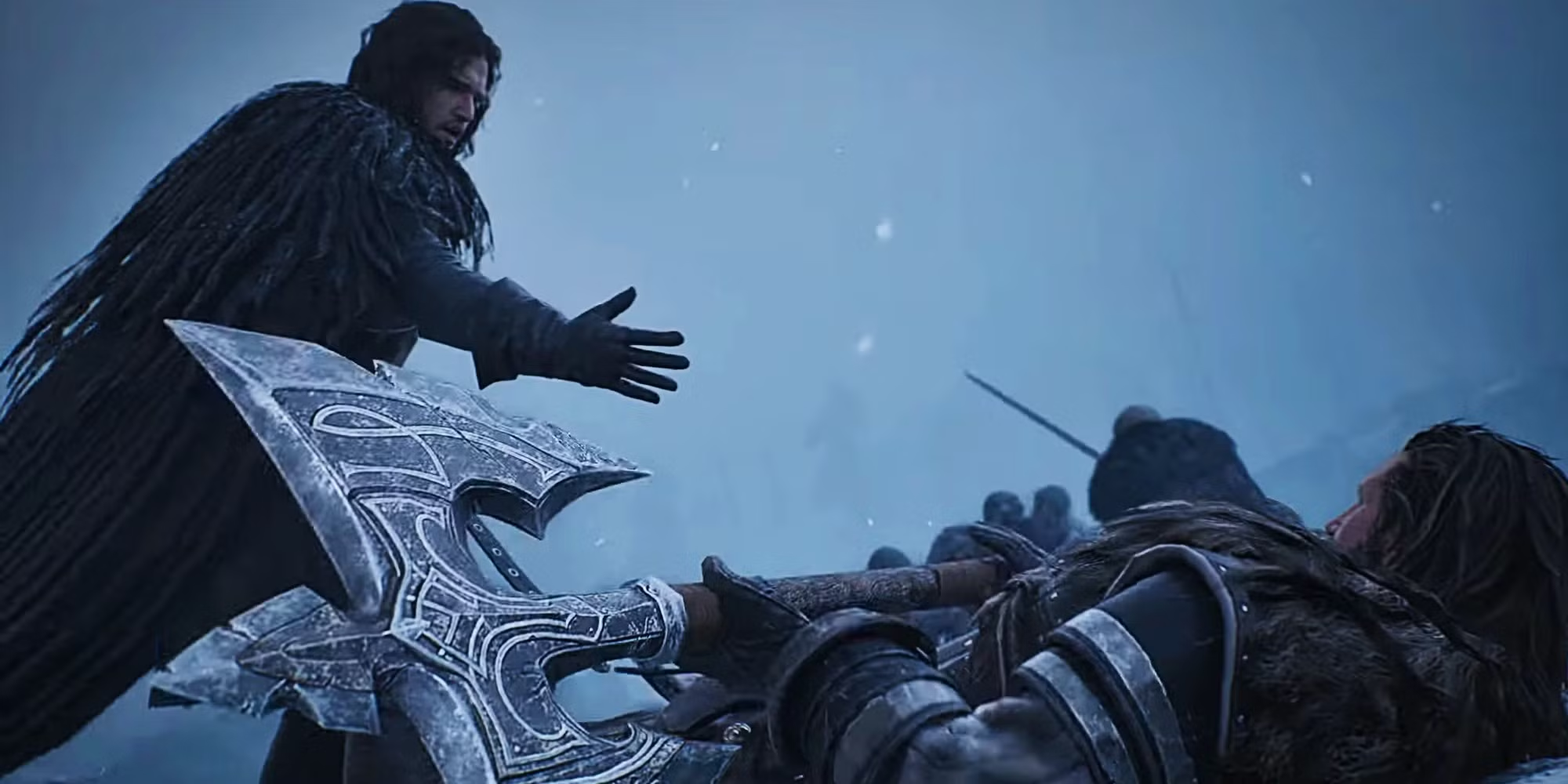(CNN) — Stay-at-home orders due to the ongoing pandemic have upended a lot of plans—weddings have been postponed, concerts have been canceled, vacations have been pushed aside. But one thing that can’t be kept down? Robert Wardhaugh’s game of Dungeons & Dragons.
For the past 38 years, Wardhaugh has been playing the same game of Dungeons & Dragons in Canada. Dungeons & Dragons is a fantasy tabletop role-playing game that usually involves lots of miniatures, lots of imaginary worlds, and lots of high adventure. Starting in 1982, that might make it the longest continuously running Dungeons & Dragons campaign, ever. Or, at least the longest Wardhaugh has ever heard of.
As the Dungeon Master, Wardhaugh has been guiding the game for decades
Dungeons & Dragons isn’t a board game. All you really need to play is some dice and a few sheets of paper. Each player creates the character they want to embody—whether that’s a noble hero, a cunning thief, a mystical druid—and the Dungeon Master, in this case Wardhaugh, guides them all through a series of adventures.
“The players control their character, but that’s all they control,” says Wardhaugh. “I control all the other aspects, whether it’s the weather, whether it’s the setting, anything they’re facing.”
When Wardhaugh first began playing Dungeons & Dragons in the early ’80s, it wasn’t the phenomenon it is today. “I grew up in a community where when I played it, the community wasn’t really happy,” says Wardhaugh. “They couldn’t wrap their head around the game. It was a fairly fundamentalist community, and so there was a lot of judgment attached to it.”
There used to be a stigma against Dungeons & Dragons
At the time, there were news reports that stoked unnecessary panic in parents that would link Dungeons & Dragons to Satanic rituals, the occult and even potential violence. And although those stereotypes have long been debunked, many kids still felt the need to hide their love of the game from onlookers.
“It taught kids vocabulary, it taught people history, it taught you sociology, it taught you philosophy. There was so much educational potential in sitting around, playing this game, but people at the time weren’t really willing to accept it,” says Wardhaugh.
“With shows like ‘Game of Thrones’ and movies like ‘Lord of the Rings,’ ‘The Hobbit,’ there’s certainly been a change in popular culture and its acceptance of fantasy themes.”
It started out with just four players
Wardhaugh first began playing when a friend introduced him to the game and accidentally left some rule books at his home. He was hooked, and as he moved from high school, to college, to graduate school, he kept collecting friends along the way who wanted to be a part of his epic campaign. What started out as just four players has grown to nearly 60 today.
And while not everyone plays at Wardhaugh’s house, many people drive and fly from all over Canada to take part. And many others video chat in, some streaming from as far as the United Kingdom. During the ongoing pandemic, Wardhaugh has relied on video chat more than ever, but it hasn’t been all bad.
“My players keep pointing out to me, there’s now more sessions than there’s ever been because of Zoom,” says Wardhaugh. He estimates that now he’s probably hosting sessions two, three and sometimes even four times a week.
Wardhaugh has created his own set of rules
Over the past 38 years, many things have changed. Players have come and gone, the game has grown ever bigger (he boasts a collection of 20,000 miniatures), and Wardhaugh has adapted to play by his own rules.
“My game is very different from the official Dungeons & Dragons rules,” says Wardhaugh. “It’s a rule system that has developed and is constantly developing, constantly changing and constantly getting better.”
One of the elements that makes Wardhaugh’s game particularly special is his incorporation of real-world history. As a history professor at the University of Western Ontario in London, Ontario, Wardhaugh has a lot of knowledge to draw from.
His background as a history professor changes the game
“Being a history professor and always loving history, I wanted to create a world where I was able to use the history of our world. My world is an alternate Earth, so you can be Roman, you can be Greek, you can be Sumerian, you can be Babylonian, you can be First Nations,” explains Wardhaugh. But all the players are ultimately working towards the same goal, which is the story that Wardhaugh, as the Dungeon Master, is telling.
“What fascinates me and draws me to history is the ability to put yourself into a different space, a different place, with different people, in a different timeframe where you have all these different cultures,” says Wardhaugh. Incorporating the color and detail from history into Dungeons & Dragons felt like a way to strengthen the game.
“From a fantasy aspect, it takes me into that world where they didn’t know if there were dragons and if they believed in monsters and they thought that there were elves in the forest,” says Wardhaugh. “And so it takes you into an age where you can get away from the skepticism that we have today and immerse yourself into that world where all these things do seem possible.”
He hopes to play for decades to come
Above all else, the game has allowed him to serve his initial purpose: To spend time with his friends. “One of the greatest successes of my game has been the fact that it has fulfilled its ultimate objective, which is keeping my friend group together,” says Wardhaugh. “I knew early on that if I was able to create a game that was good enough, that they would keep coming. And that they would play with me, no matter where I was.” That game is hopefully set to continue for many more decades to come.
“One of the things that sets my game apart from all other games is that the only thing that’s going to limit it, I suppose, is my lifespan,” says Wardhaugh. But his game has certainly created a legacy. His teenage daughter has been involved with the game since she was 8 years old. And his students have also started to take an interest.
“Now, every class I teach, I have students coming up to me and they seem a bit shy and I know exactly what they’re going to say and what they want to ask me,” says Wardhaugh. “In a weird way, it’s opened me up in class, to my students, to a different conversation.” Wardhaugh notes that his skills as a storyteller have aided him not only as a Dungeon Master, but also as a historian and a professor.
“It makes me happy to know my players still want to play, and that they’re excited about playing, and that they constantly want to play,” says Wardhaugh. And, if the last few months have proven anything, it’s that nothing, not even a global pandemic, can stop people from wanting to come together, connect, and tell stories.




















![[Book Review] The Blade Itself (The First Law Trilogy) by Joe Abercrombie](https://bendthekneegot.com/wp-content/uploads/2018/01/1516047103_maxresdefault-218x150.jpg)
















